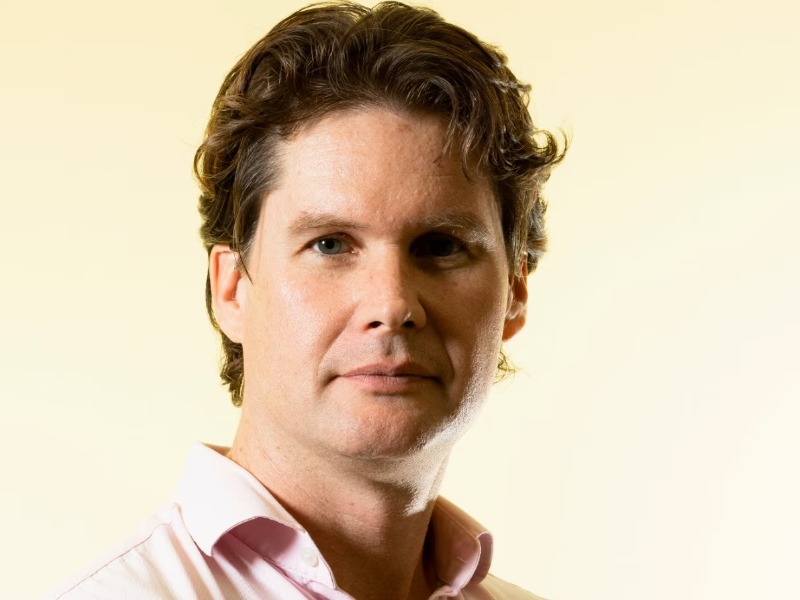Six months after Microsoft ended its quantum research efforts in Australia, the renowned Australian physicists who led the work are preparing to launch a local company with global reach.
David Reilly and Thomas Ohki are putting the final touches on the as-yet-unnamed company, which is positioning itself as the go-to for quantum computing-related R&D spanning applied physics and engineering.
It’s a point of difference Professor Reilly is keen to stress as the global quantum race heats up, with tech giants like Microsoft, Google and IBM and startups all jockeying for pole position.
“We’re certainly not wanting to be what you’d call a full-stack quantum computing company. We’re not selling quantum computers; we’re not competing in that space,” Professor Reilly told InnovationAus.com.

The opportunity to set up the new company emerged from Microsoft’s decision to end its quantum collaboration with the University of Sydney last year. The new startup, founded by Professor Reilly and Dr Ohki with the Sydney-based team, will continue its work to bring workable quantum computing to life in coming months, with a major feather in its cap, having played a critical role in a key breakthrough.
Microsoft on Thursday unveiled a palm-sized quantum processor powered by the world’s first topoconductor, which can create an entirely new state of matter that is not a solid, liquid or gas.
The research by Professor Reilly and the 15-strong team into readout and control techniques was crucial to the development of the chip, which the tech giant believes makes error-corrected, utility-scale quantum computers a reality this decade.
“We want to be able to do that for many other companies, academic groups, government and so our company will … be focused on our capabilities and knowhow as a team, spanning applied physics and engineering,” he said.
“We see opportunity to even move beyond quantum computing into related disciplines. We think that these types of skills and engineering capability more broadly will be applicable.
“And we want to do that from Australia. We would certainly be playing on a world stage, but we think that Australia has invested in our broad activities, and trained and educated people here over the years.”
Professor Reilly said that having Microsoft invest in Australia through its tie up with the University of Sydney – one of only four Microsoft quantum research partnerships world-wide – was a “significant win” over the last eight year, creating a base from which to grow.
“We did a lot of work for them that has enabled what they’re doing, and they made significant investments here. And now we are moving to that next chapter where, rather than moving to the US, we’re remaining here.”
One reason behind that decision was what Professor Reilly said was a clear “opportunity to be based here but still focused worldwide”, allowing the new company to work with both local and international players with geopolitical stability.
PsiQuantum, the Californian startup that will attempt to build the world’s first utility-scale, fault-tolerant quantum computer in Australia following a $940 investment from the federal and Queensland governments, is part of that, he said. That investment was a positive for the industry in Australia.
“We heard lots of talk. [But] to do actually do something, and put some serious money behind something – that’s impressive. That does put Australia on the map, and I think that’s a good sign.”
“Investing in quantum computing, hiring people, building technologies is broadly going to lift everybody. But we have to remain world-focused and think about how we’re going to participate on a world stage.
“And that has, in part, informed our thinking about how to create a company that is really well positioned to do that. We see an opening, a need for that in Australia.”
“If you wanted R&D done, just like in general, what are you options in Australia. If you look to the US, there are many of these types of entities that fil that area. In Australia, we don’t really have that, so this will be a first.”
The new company, which is still some months away, is currently “working through the details”, but has so far resisted raising venture capital, preferring to use revenue from existing contracts to fund its initial growth, bootstrapping until it really needs a capital boost.
Professor Reilly said “deep conversations with many different players” interested in aspects as diverse as electronic chip design, radio frequency, microwave electronics, cryogenics, thermal management and signal processing are ongoing.
“Philosophically, or culturally, we really feel strongly about creating something that is based on credibility and meaningful results, and to develop a reputation that’s anything but hype.”
“The way we’re positioning ourselves is to, where possible, try and avoid those aspects. So we would be unlikely to make announcements of things that were not yet substantiated and real.”
With James Riley
Do you know more? Contact James Riley via Email.

